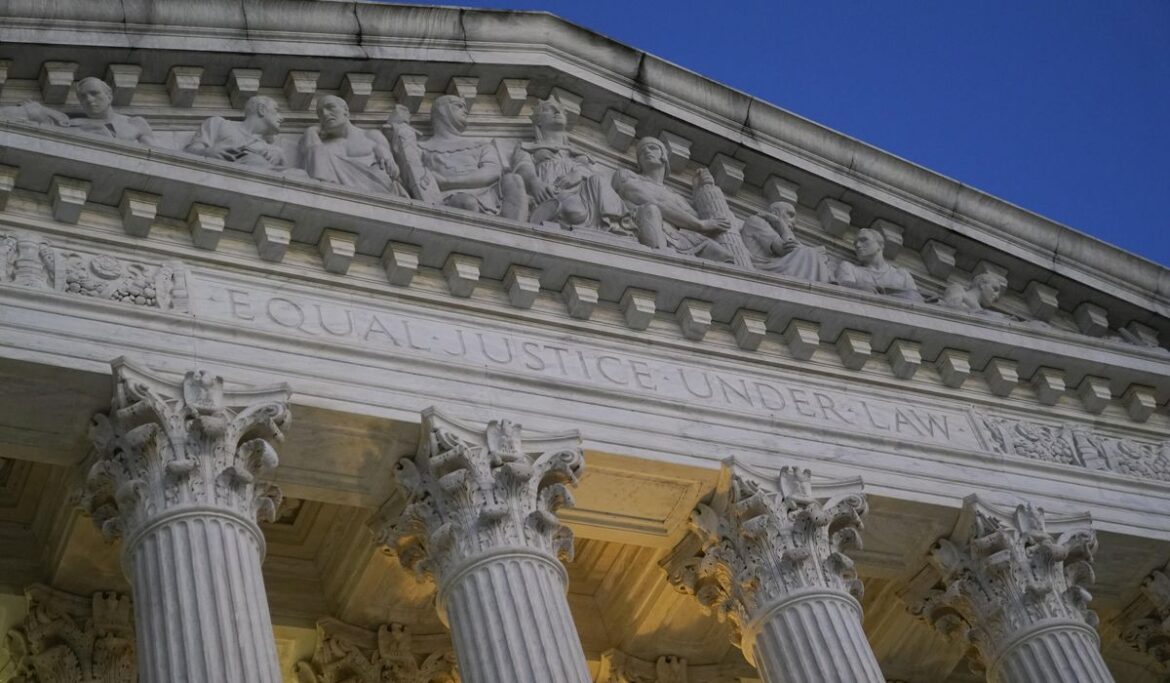The Supreme Court halted a court ruling Thursday that had ordered the White House and FBI to stop coercing social media companies to erase content the government didn’t like.
Justice Samuel A. Alito Jr. issued the stay just hours after the Justice Department requested it. The stay lasts through Sept. 22 and gives the court time to hear more arguments before rendering a broader decision.
The Justice Department said the court must step in to restore the First Amendment rights of the president’s team to cajole or criticize tech companies.
“Of course, the government cannot punish people for expressing different views. Nor can it threaten to punish the media or other intermediaries for disseminating disfavored speech. But there is a fundamental distinction between persuasion and coercion,” Solicitor General Elizabeth Prelogar said in a petition asking the justices to step in.
The case, brought by the states of Missouri and Louisiana and by private actors, has quickly turned into a major test of government power and social media action.
As the case proceeded through the lower courts, the plaintiffs obtained reams of documents showing the heavy-handed tactics the White House, the FBI and other federal actors used to try to tamp down on social-media messages with which they disagreed.
That included emails from senior White House officials demanding postings be taken down “ASAP,” or instructing tech companies to work on “slowing” the reach of other posts. In one email, a White House official said they were “considering our options” for how to retaliate against the platforms for being too slow to act.
A U.S. district court judge found those statements crossed the line from legal persuasion to illegal coercion. He issued a broad injunction that silenced much of the communications to tech companies from the White House, FBI, Centers for Disease Control and Prevention, and several other agencies.
The 5th U.S. Circuit Court of Appeals stepped in and dramatically cut down the scope of that injunction. The three-judge appeals panel said only truly coercive behavior could be barred, and narrowed the injunction to only apply to the White House, FBI and CDC.
Still, the ruling was a significant black eye for President Biden, specifically finding that his team had engaged in unconstitutional pressure to silence opponents.
“On multiple occasions, the officials coerced the platforms into direct action via urgent, uncompromising demands to moderate content,” the court concluded. “In doing so, the officials were persistent and angry. And, more importantly, the officials threatened — both expressly and implicitly — to retaliate against inaction.”
Facebook, Google and YouTube “fell in line,” the judges said, working hard to appease the White House and the Surgeon General’s office.
The FBI, too, was guilty of coercion, the court found.
The CDC didn’t coerce, but it did “significantly encourage” the platforms to censor content, which is also a violation, the court ruled.
Ms. Prelogar said Thursday that the government’s behavior has always been persuasion, not coercion.
She pointed to numerous times that the tech companies did not comply with White House demands as evidence the social media platforms were able to operate freely, and didn’t feel coerced.
She also said the injunction was too broad, silencing “thousands of federal officers and employees” and covering every social media platform.
At the least, she said, the Supreme Court should trim the injunction only to cover posts made by Missouri, Louisiana and others who were party to the lawsuit.


